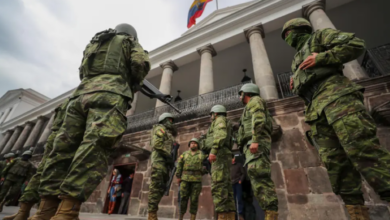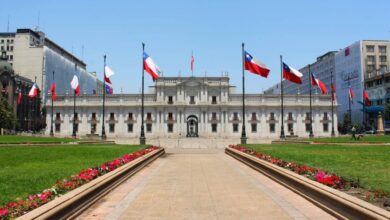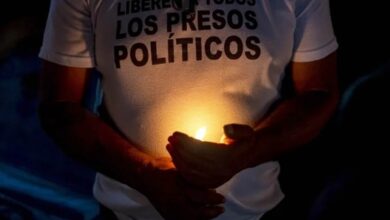Venezuela: lessons of the Rwandan genocide
Listen this article
Can Venezuela learn from what happened in Rwanda?

On April 7, 25 years of the Rwandan genocide were celebrated, where for one month more than 800,000 people died victims of ethnic classification. The Hutus against Tutsis, in a war that began sponsored by radical groups and who addressed the Tutsis as cockroaches and ratified that any contact with them could be considered treason.
Leer en español: Venezuela: lecciones del genocidio de Ruanda
After the death of the president of that time, the Hutus undertook a hunt against the Tutsi, and as El Universal indicates, "75% of the population was massacred […] around 330 people were killed per hour". However, the genocide, "accentuated from the government, taking advantage of the ethnic differentiation that the colonialist countries (especially Germany and Belgium)" according to Análitica; it was the terrible result of the conflict of economic and political interests of those who coveted power. The crisis, which was fueled since 1990, finally exploded in April 1994 and 25 years later we still have a lot to learn.
Venezuela and Rwanda
It is clear that the situation of Venezuela in 2019 and Rwanda in 1994 are different. The first clear distinction is the origin of the conflict. While in the African country it was ethnic, that of Venezuela is political. Now, in the Latin American country, it is the socialist minority that makes the regime stay in power; while in Rwanda it was the minority who suffered from the atrocities of the Hutus. Despite the differences, there are similarities when dealing with the conflict, and that should be implemented or avoided in the Venezuelan situation.
You may be interested in reading: Russia and its strategy with Venezuela
International community
The role of the international community in what happened with Rwanda was disastrous for two main reasons. Bill Clinton, president of the United States, decided to deny the existence of the genocide, product of which his country belonged to the Convention for the Prevention and Punishment of the Crime of Genocide, and in case of recognizing it, "had the obligation to intervene to prevent and punish acts tending to destroy a nation, ethnic group, race or religious group, "according to 20 minutes.
Second: the abandonment of the UN in the face of the conflict. After seeing how the situation worsened, the agency decided to remove the blue helmets that had sent to counteract the conflict. Despite the warnings of the person in charge of the mission of the UN in the African country, Romeo Dallaire, the organization did not do anything until July of 1994 when they realized the thousands of victims, but it was already very late. That is why, on the twentieth anniversary, the UN recognized its failure in the genocide of Rwanda and at that time (the institution) "failed to fulfill its duty to strengthen the UN peacekeeping mission to protect as many of its members as possible civilians," according to TeleSur.
Therefore, the role of the international community must be clear and above all, focused on advocating for human rights that are being violated in Venezuela. Again, the situation between the two conflicts are different, but the social, political and economic crisis needs to be resolved under a legal framework that gives evidence of the resolution of the dispute under the premise of the defense of human rights. Here there is no room for political interests; we saw what happened with Clinton.
Military intervention
One of the solutions that is most discussed in the case of Venezuela is the military intervention, usually promoted by the governments related to Donald Trump. However, when this "strategy" was used, it managed to get many of the perpetrators of the genocide to escape. Thanks to the intervention of France, and in addition to the above, his participation in the advance towards "Kigali of the Tutsis of the Rwandan Patriotic Front where he had put the Hutu Government in disarray. That French intervention saved the lives of some Tutsis but, at the same time, supported the genocide's flight east of Zaire, "according to Diagonal.
The support of military forces is disguised as false humanitarian aid. Military interventions do not guarantee a solution to the problem. On the contrary, they could increase the number of victims and not meet the objective of saving them. According to Analítica, "those who hold power arbitrarily violating the human rights of the inhabitants, what will they do? Its tool of negotiation and pressure will be civilians who are already victims. "
LatinAmerican Post | Laura Viviana Guevara Muñoz
Translated from "Venezuela: lecciones del genocidio de Ruanda"





